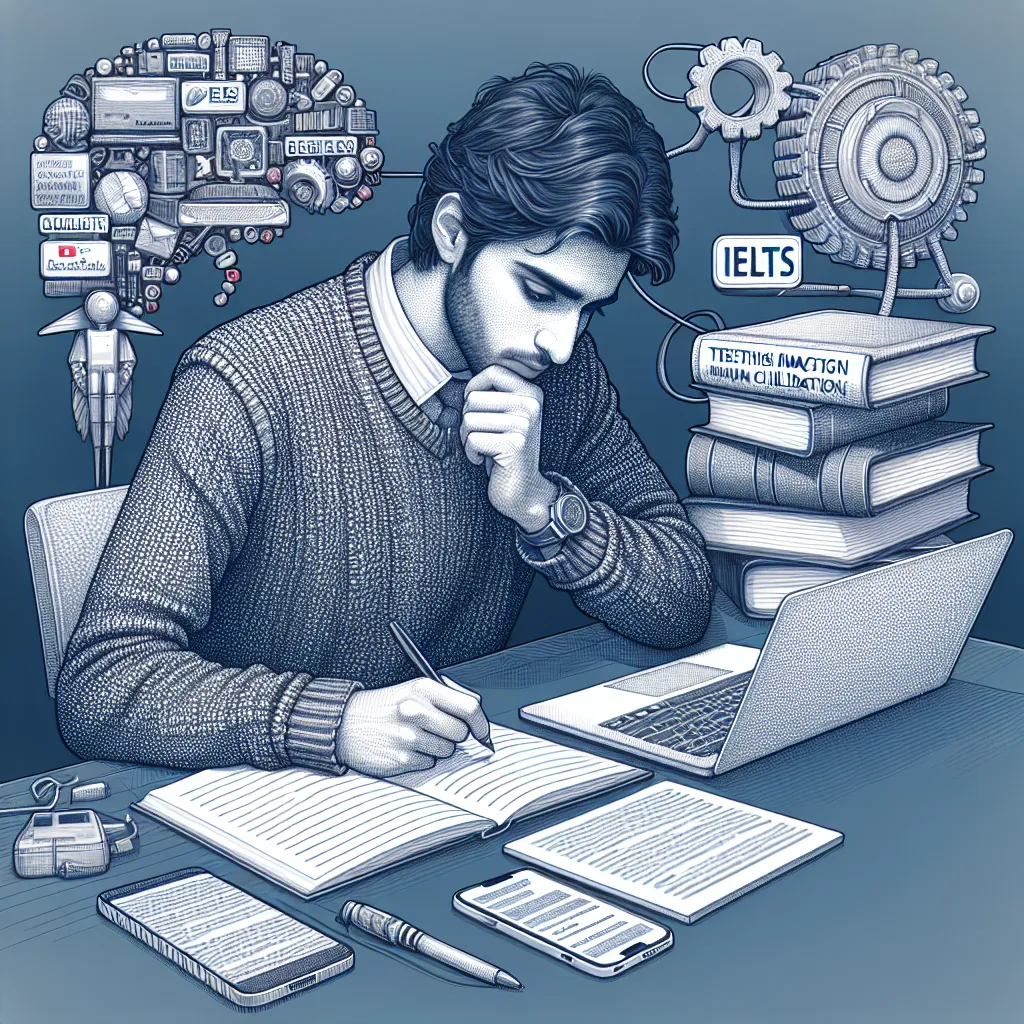Technology’s impact on children has become a recurring theme in IELTS Writing Task 2 essays. This topic has appeared frequently in recent years and is likely to remain relevant in future exams due to its significance in modern society. Let’s examine a sample question and provide a model essay to help you prepare for this type of task.

Sample Question
Let’s focus on the following question, which is representative of the types of prompts you might encounter in the IELTS exam:
Some people think that the increasing use of technology, such as smartphones and computers, by young children is beneficial to their development. Others believe it is harmful. Discuss both views and give your own opinion.
Analyzing the Question
This question requires you to:
- Discuss the benefits of technology use by young children
- Discuss the potential harm of technology use by young children
- Provide your own opinion on the matter
Remember to address all parts of the question and maintain a balanced approach while clearly stating your position.
Sample Essay
Here’s a model essay addressing the given question:
In today’s digital age, the use of technology by young children has become a contentious issue. While some argue that early exposure to devices like smartphones and computers can enhance a child’s development, others contend that it may be detrimental. This essay will examine both perspectives before presenting my own viewpoint.
Proponents of technology use by young children argue that it can offer numerous benefits. Firstly, educational apps and programs can supplement traditional learning methods, providing interactive and engaging ways for children to acquire knowledge. For instance, language learning apps can help children develop vocabulary and pronunciation skills from an early age. Secondly, technology can foster digital literacy, a crucial skill in our increasingly digitized world. Children who are comfortable with technology from a young age may have an advantage in future academic and professional settings.
On the other hand, critics raise valid concerns about the potential harm of excessive technology use. One primary concern is the impact on physical health. Extended screen time can lead to issues such as eye strain, poor posture, and reduced physical activity, potentially contributing to childhood obesity. Furthermore, there are worries about the effect on social and emotional development. Overreliance on digital interactions may hinder the development of face-to-face communication skills and empathy, which are essential for building meaningful relationships.
In my opinion, while technology can offer valuable learning opportunities, its use by young children should be carefully moderated. I believe that a balanced approach is key. Parents and educators should strive to integrate technology in ways that complement, rather than replace, traditional forms of learning and play. Setting clear boundaries on screen time and ensuring that children engage in a variety of activities, including outdoor play and face-to-face interactions, can help mitigate the potential negative effects of technology use.
In conclusion, the impact of technology on children’s development is complex and multifaceted. While it offers undeniable benefits in terms of educational resources and digital literacy, concerns about its effects on physical and social development are valid. A thoughtful, balanced approach to technology use, coupled with proper guidance from adults, can help children reap the benefits of the digital age while minimizing potential drawbacks.
(Word count: 345)
Writing Tips
When addressing this topic, keep the following points in mind:
-
Structure: Ensure your essay has a clear introduction, body paragraphs discussing both viewpoints, and a conclusion that summarizes your opinion.
-
Balance: Give equal weight to both perspectives before presenting your own view.
-
Specific Examples: Use concrete examples to support your arguments, such as mentioning specific educational apps or health concerns.
-
Vocabulary: Employ a range of vocabulary related to technology and child development. Avoid repetition by using synonyms and varied sentence structures.
-
Cohesion: Use linking words and phrases to connect your ideas smoothly.
Key Vocabulary
Here are some useful vocabulary items for discussing technology’s impact on children:
- Digital literacy (noun) /ˈdɪdʒɪtl ˈlɪtərəsi/: The ability to use digital technology effectively
- Screen time (noun) /skriːn taɪm/: Time spent using a device with a screen
- Cognitive development (noun) /ˈkɒɡnətɪv dɪˈveləpmənt/: The growth of intellectual abilities
- Interactive (adjective) /ˌɪntərˈæktɪv/: Allowing a two-way flow of information
- Sedentary lifestyle (noun) /ˈsedntri ˈlaɪfstaɪl/: A way of life with little physical activity
- Moderation (noun) /ˌmɒdəˈreɪʃn/: The avoidance of excess or extremes
- Supplement (verb) /ˈsʌplɪment/: To add an extra element or amount to something
- Digital native (noun) /ˈdɪdʒɪtl ˈneɪtɪv/: A person born or brought up during the age of digital technology
Conclusion
The topic of technology’s impact on children is likely to remain relevant in IELTS Writing Task 2. To prepare, practice writing essays on related themes such as:
- The role of technology in education
- Balancing screen time with other activities for children
- The effects of social media on young people’s mental health
- The importance of digital skills in the modern job market
Remember to stay informed about current research and debates surrounding this issue to strengthen your arguments and provide up-to-date examples in your essays.